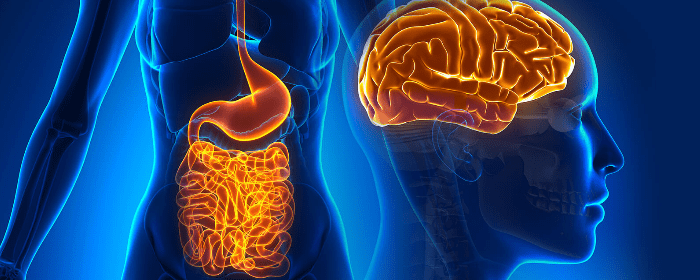
by admin | Jul 22, 2021 | Health Awareness
Over the last decade, a significant amount of research has focused on the potential link between brain disorders and gut microbes. There is significant evidence that the gut microbiome plays a key role in identifying risk factors for several disorders, including:
However, interpreting this data can be challenging. This is because gut microbes are influenced by things such as exercise and diet. Additional research is still required, but the correlative relationship between brain disorders and gut microbes cannot be ignored.
Are Brain Disorders Caused by Gut Microbes?
Several trailblazers in the field have proposed that issues within the gut microbiome can trigger a variety of brain disorders. They have also hypothesized that gut microbes can influence the severity of these conditions. These presumptions are based on several animal-based studies. No meaningful human trials have been conducted at this point.
While no trials have been completed as of yet, scientists have gathered empirical data from patients suffering from certain neurodegenerative conditions. Their findings support the presumption that gut microbes can cause or worsen various brain disorders. They established a link between the presence of certain microbes and an increased risk of developing conditions such as ALS.
Can Brain Disorders Be Treated by Altering the Gut Microbe?
Unfortunately, research into the connection between the gut microbe and brain disorders has not given way to any new treatment options as of yet. Due to the nature of medical science, it will likely be several years before this data is translated into meaningful solutions.
Patients may explore to have a comprehensive evaluation on their overall and gut health with tests that can be done at home and sent to be evaluated. Learn your personal blueprint today with Genova Diagnostic testing available.
Others are discovering new neurodegeneration therapy opportunities that have arisen in recent years. The most notable of these is regenerative medicine, also known as stem cell therapy. This alternative option is available for access and initial research has resulted in showing potential outcomes in both symptom management and slowing condition progression.

by admin | May 23, 2020 | Health Awareness
The microbiome is located within the large intestine and is home to a vast array of bacteria, protozoa, fungi, and viruses. This complex system aids in digestion regulates the immune system and produces critical vitamins. Thus, when something goes wrong with the balance in the microbiome, it can lead to infection, chronic illness, and other serious health implications.
When your gut health is on track, you won’t even notice the microbiome working in your favor. Yet, factors such as poor dietary choices, exposure to toxins, and certain medications can throw off the delicate balance of good to bad bacteria in the intestinal tract. Fortunately, there are usually telltale signs you can watch for to see if your gut health may need some attention. Here are just a few to consider:
Upset Stomach
Occasional gas, bloating, and diarrhea could be normal. Yet, when these symptoms become frequent, it’s important to rule out underlying intestinal issues, including conditions such as inflammatory bowel disease.
Weight Fluctuations
If your weight is changing without any differences in diet and exercise, take note. Metabolism is largely influenced by gut health, and if your microbiome is unbalanced, your body may be struggling to properly absorb and use nutrients. You could lose weight due to a lack of good bacteria, or gain as a result of overeating to compensate.
Skin Woes
Researchers have identified a connection between certain skin conditions and gut inflammation. In particular, watch for sudden flare-ups of acne, psoriasis, eczema, or rosacea.
Bad Breath
There are several potential causes of bad breath, including dental issues. Yet, it’s also possible for an odor to come from deeper within the body – including the microbiome. If the balance is off, your entire digestive system could be impacted, potentially leading to bad breath-inducing issues like heartburn or gastroesophageal reflux disease (GERD).
Anxiousness or Mood Swings
Oftentimes, an upset stomach and anxiousness go hand-in-hand. This makes sense, since the gastrointestinal tract may have more to do with emotional health than we previously thought. While anxiety can worsen gut issues, it’s also possible that intestinal imbalances could lead to mood changes. This is likely due to the fact that the majority of the body’s serotonin, a critical hormone-regulating emotion, is located in the gut.
If you think your gut health may need a bit of attention, here are a few ways you can improve it:
- Reduce your sugar intake. Added sugars can disrupt the microbiome’s balance, so try to cut back on heavily processed, sugary foods.
- Maintain a diverse diet. Keep gut health in check by incorporating many different vegetables, fruits, lean protein sources, healthy fats, and whole grains into your meals. Fermented foods, such as yogurt and sauerkraut, are also beneficial, as they have probiotics to support gastrointestinal wellness.
- Get plenty of fiber. The nutrient is important for healthy digestion, but the American diet often lacks sufficient fiber. Whole grains, nuts, seeds, and fresh fruits and vegetables are all good sources, but incorporate the nutrient slowly to avoid overwhelming your system.
Of course, if you have any GI symptoms which persist for more than a few days even after switching up your diet, don’t hesitate to make an appointment with your doctor.
Another option is to seek a functional medicine doctor or a provider that can test for key nutritional deficiencies. Stemedix offers this comprehensive personalized testing, contact a Care Coordinator at 800-531-0831 for more information.

by admin | Oct 15, 2019 | Health Awareness, Parkinson's Disease
For some time now, gut health has been suspected to play a key role in chronic conditions. We now know that there is significant interaction between the body’s immune system and bacteria in the intestinal tract, and researchers have become increasingly interested in how the immune system ties into conditions such as Parkinson’s disease (PD). But how do these factors all connect?
The Potential Role of Gut Infections in Parkinson’s Disease
Emerging research suggests Parkinson’s disease could have an autoimmune component. Autoimmune conditions occur when the body’s immune system confuses healthy cells for pathogens and sets out to destroy them. A small percentage of PD cases are caused by mutations in genes that code for the proteins PINK1 and Parkin, which help clear out damaged mitochondria. Individuals with these mutations are more likely to develop PD before the age of 50.
Yet, when scientists removed PINK1 and Parkin from mice in a recent study, thereby giving them the same mutations linked to Parkinson’s disease in humans, they did not develop the disease. The research team theorized that factors other than these genetic mutations alone would likely be required for PD to develop. In particular, they believed exposure to specific germs could trigger Parkinson’s disease in individuals with this mutation.
To test this theory, the mice were exposed to E. coli. As the researchers suspected, they experienced PD-like symptoms later in life, along with a loss of dopaminergic neurons in the brain. This suggests that in individuals with certain genetic mutations, gut infections can trigger an immune system response which targets healthy cells.
What the Findings Mean
This research has also led scientists to the conclusion that in people without functioning PINK1 and Parkin, intestinal infections can trigger PD, thereby demonstrating a clear gut-brain connection in the disease. While this doesn’t suggest that all PD cases are autoimmune, it does pose the theory that there could be an immune system element in some cases. Although the mystery surrounding Parkinson’s disease still remains, this discovery points to an interplay between the gut, genetics, and brain, which may ultimately pave the way for further developments in the realm of treatment.

by admin | Aug 8, 2019 | Health Awareness
For quite some time now, scientists and medical experts have known that gut bacteria and the immune system appear to be closely intertwined. Until very recently, however, the precise mechanisms behind this connection have been unclear. In late May, researchers revealed groundbreaking findings observed in animal studies which suggest how the intestines may help regulate our overall health.
The Role of the Lower GI Tract
In mammals, the intestinal system allows healthy nutrients to pass through its walls, while at the same time blocking harmful bacteria from spreading throughout the body. In particular, the lower gastrointestinal (GI) tract is where most of these activities take place: food is processed until it becomes fundamental nutrients, which then pass through the intestinal wall to the bloodstream and to our vital organs. But the question of how the intestinal wall prevents the harmful bacteria from escaping with these nutrients has puzzled researchers.
Now, researchers from Rockefeller University in New York City think they may have an answer. Their study findings show that in mice, a sophisticated intestinal system has been observed. Specifically, certain areas of the GI tract are more likely to elicit an immune system response than others when encountering pathogens. While the intestines look similar, closer inspection reveals a complex intestinal immune system with a unique, organized structure.
Key Differences Throughout the GI System
Interestingly, researchers found that lymph nodes in mice’s large intestines would detect and combat harmful bacteria such as salmonella, whereas small intestines seemed to primarily carry out nutrient absorption and delivery to the bloodstream. According to the researchers, the ability to pinpoint the areas in the intestines which produce the most powerful immune system response could help medical experts create more targeted therapies for GI conditions. They also suspect that the findings could make oral vaccines, which have previously failed to produce an ample immune response, a possibility in the future.
While there is clearly still much to glean from microbiome research, we do know that maintaining healthy gut bacteria can have numerous benefits for our bodies. From eating a diet rich in plant-based food sources to taking supplements as recommended or approved by your doctor, there are many ways you can work towards maintaining a healthy balance of gut flora.

by admin | Jun 5, 2019 | Health Awareness
Within recent years, there has been increasing evidence to suggest gut bacteria plays a powerful role in many aspects of health. The microbiome, or microbial communities within our intestinal tract, have been a suspected agent behind many chronic conditions. Now, one study indicates gut flora may impact mental health, too.
Depression & Gut Bacteria
A recent study published in Nature Microbiology shows that individuals with depression had low levels of two types of “good” gut bacteria, Coprococcus and Dialister. The finding was consistent regardless of whether or not the subjects were taking antidepressants.
Interestingly, subjects who claimed to have a high mental quality of life were found to have plentiful levels of Coprococcus. The gut flora Faecalibacterium was also common among the same group.
While the study findings don’t outright prove that insufficient gut flora leads to mood disorders, they do strongly suggest a correlation. Moreover, it’s possible that the effect works in the opposite way, with mental health problems contributing to microbiome issues. The researchers further discovered that gut microbes can actually communicate with the body’s nervous system via neurotransmitters which support mental health.
The lead researcher said that many gut bacteria can produce neurotransmitters or precursors for critical substances like serotonin and dopamine, both of which play a role in regulating mood. Imbalances in these can also contribute to depression.
Based on this fascinating link, it’s possible that taking probiotics will one day become a prescriptive aspect of treating the effects of depression and perhaps boosting overall mood even in individuals without mental illness. In the meantime, discussing the option of probiotics as a means to promote disease prevention and overall health isn’t a bad idea anyhow. Your doctor may also suggest lifestyle tactics for boosting gut flora, such as incorporating probiotic-rich foods with live bacteria such as yogurt, sauerkraut, miso, and kefir into your diet. They may also suggest Vitamin A as a potential source to help as well.






 St. Petersburg, Florida
St. Petersburg, Florida
